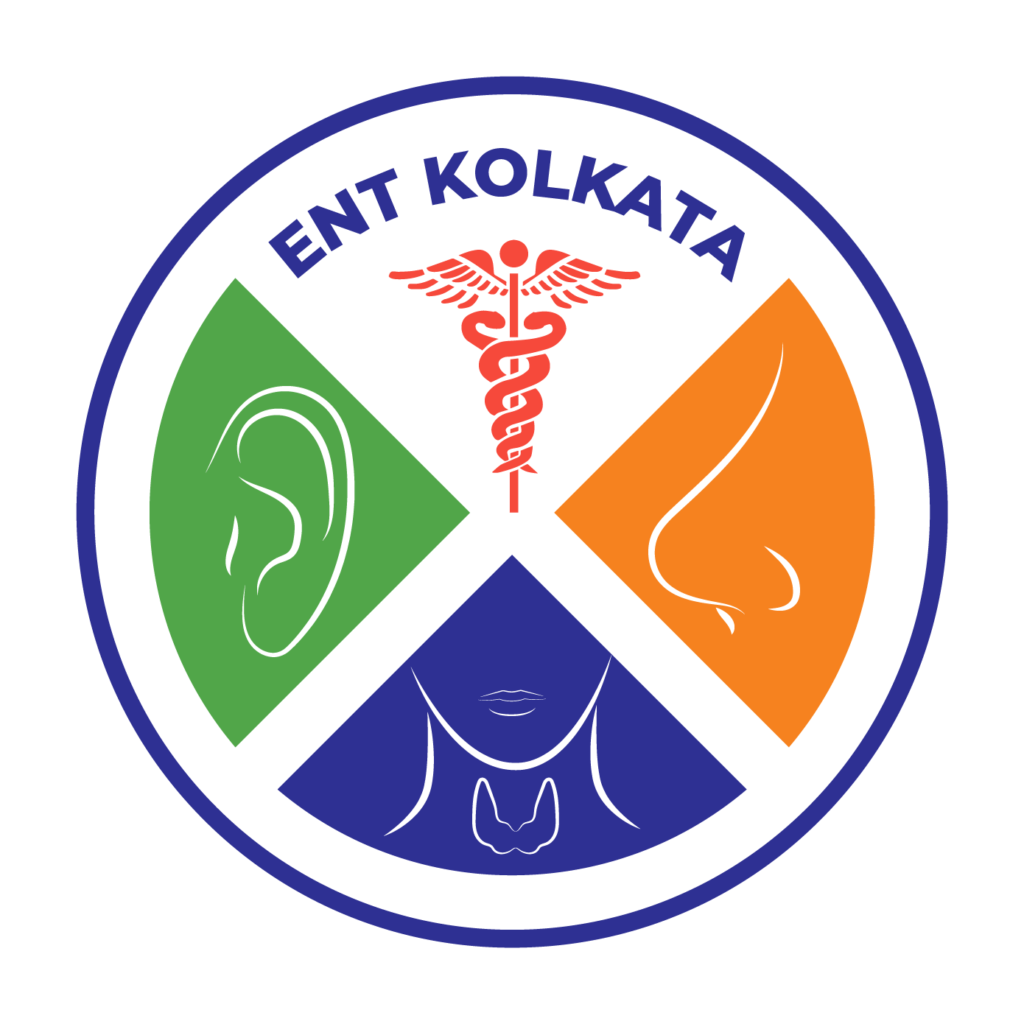Disclaimer: This content is for educational purposes only. Always consult qualified medical professionals for proper diagnosis and treatment of your specific condition.
Nasal obstruction represents one of the most common ENT conditions that can contribute to headache development. Understanding the relationship between breathing difficulties and headache patterns requires comprehensive medical knowledge and specialized ENT evaluation for accurate assessment and appropriate treatment planning. Qualified professionals such as ENT Doctor Kolkata provide medical expertise in evaluating these complex conditions through evidence-based diagnostic approaches.
Understanding Nasal Obstruction Medical Pathophysiology
Nasal obstruction occurs when normal airflow through the nasal passages becomes restricted or blocked, creating altered breathing patterns and potential pressure changes within the upper respiratory system. This condition can result from various anatomical abnormalities, inflammatory processes, or environmental factors that affect normal nasal function.
Medical professionals such as ENT Doctor Kolkata recognize that nasal obstruction can contribute to headache development through multiple mechanisms. Altered airflow patterns may create negative pressure within the sinuses, potentially triggering pain receptors. Additionally, mouth breathing compensation can lead to throat irritation and secondary muscle tension that contributes to headache symptoms.

Medical Causes of Nasal Obstruction
Qualified ENT Specialists identify numerous potential causes of nasal obstruction that may contribute to headache development. Structural abnormalities represent a significant category of obstructive conditions that require specialized medical evaluation for accurate diagnosis.
Anatomical Medical Conditions
Deviated nasal septum represents one of the most common structural causes of chronic nasal obstruction that specialists like ENT Doctor Kolkata frequently evaluate. This condition occurs when the thin wall between nasal passages is displaced to one side, creating unequal airflow patterns and potential pressure imbalances that may contribute to headache development.
Turbinate hypertrophy involves enlargement of the normal nasal structures responsible for air humidification and filtration. When these structures become chronically enlarged due to allergic reactions, infections, or other inflammatory processes, significant airflow restriction can occur. Medical professionals such as ENT Doctor Kolkata diagnose this condition through specialized examination techniques.
Nasal polyps represent benign growths that can develop within the nasal passages or sinuses, creating mechanical obstruction to normal breathing patterns. These growths often associate with chronic inflammatory conditions and may contribute to both breathing difficulties and associated headache symptoms. Qualified specialists including ENT Doctor Kolkata provide comprehensive evaluation of polyp-related breathing difficulties.
Medical Inflammatory Conditions
Chronic rhinitis involves persistent inflammation of the nasal mucosa that can result from allergic reactions, environmental irritants, or infectious processes. This inflammation causes mucosal swelling and increased secretion production that contributes to nasal congestion and potential headache development.
Vasomotor rhinitis represents a non-allergic form of chronic nasal inflammation that can cause intermittent or persistent nasal obstruction. This condition often responds to environmental triggers such as temperature changes, humidity variations, or chemical exposure.
Comprehensive Medical Diagnostic Assessment
ENT specialists employ systematic diagnostic approaches to evaluate nasal obstruction and its potential relationship to headache symptoms. Medical evaluation begins with detailed symptom analysis that examines the timing, severity, and characteristics of both nasal congestion and associated headache patterns.
Advanced Medical Examination Techniques
Anterior rhinoscopy provides direct visualization of the nasal passages, allowing medical professionals to identify anatomical abnormalities, mucosal inflammation, and obstructive lesions that may contribute to breathing difficulties and headache development.
Nasal endoscopy utilizes flexible or rigid endoscopic equipment to provide detailed examination of the nasal passages and sinus openings. This advanced technique allows ENT Specialists to identify subtle abnormalities and assess the degree of obstruction that may not be apparent during routine examination.
Medical Imaging Assessment
Computed tomography imaging of the paranasal sinuses provides detailed anatomical assessment of nasal and sinus structures. This imaging modality helps identify structural abnormalities, inflammatory changes, and obstructive lesions that contribute to nasal obstruction and potential headache development.
Medical professionals may recommend imaging studies when clinical examination suggests significant anatomical abnormalities or when symptoms persist despite initial treatment approaches. CT imaging provides valuable information for surgical planning when medical management proves insufficient.
Medical Treatment Approaches
ENT specialists employ evidence-based treatment strategies that address both the underlying causes of nasal obstruction and associated headache symptoms. Treatment selection depends on the specific cause of obstruction, symptom severity, and patient factors that influence therapeutic decision-making.
Medical Management Strategies
Topical nasal decongestants provide temporary relief of nasal congestion by reducing mucosal swelling and improving airflow patterns. However, medical professionals emphasize the importance of limited use duration to prevent rebound congestion that can worsen symptoms with prolonged application.
Saline nasal irrigations offer safe and effective treatment for nasal congestion caused by inflammatory conditions. These irrigations help remove inflammatory debris, reduce mucosal swelling, and improve natural drainage patterns that support normal breathing function.
Intranasal corticosteroids represent first-line treatment for inflammatory causes of nasal obstruction. These medications reduce mucosal inflammation, decrease secretion production, and help maintain improved airflow patterns when used consistently according to medical recommendations.
Advanced Medical Procedures
When medical management fails to provide adequate symptom relief, ENT specialists may recommend procedural interventions designed to address structural causes of nasal obstruction and restore normal breathing patterns.
Septoplasty represents a surgical procedure designed to correct significant septal deviations that cause chronic nasal obstruction. This procedure involves straightening the nasal septum to improve airflow and reduce pressure imbalances that may contribute to headache development.
Turbinate reduction procedures address enlarged turbinate structures that obstruct normal airflow. Various techniques including radiofrequency ablation, partial resection, and submucous resection can be employed based on individual anatomical requirements and patient factors.
Environmental Medical Management
Comprehensive nasal obstruction management extends beyond medical and surgical treatments to include environmental modification strategies that reduce exposure to inflammatory triggers and support optimal nasal function.
Air Quality Medical Optimization
Indoor air quality improvement through filtration systems reduces exposure to allergens and irritants that can trigger nasal inflammation and obstruction. ENT specialists provide medical guidance on appropriate filtration technologies based on individual sensitivity patterns and environmental factors.
Humidity control helps maintain optimal mucosal function while preventing excessive dryness that can worsen nasal symptoms. Proper humidity levels between thirty and fifty percent provide balance between comfort and prevention of mold growth that can trigger allergic reactions.
Occupational Medical Considerations
Workplace exposure assessment identifies environmental factors that may contribute to chronic nasal inflammation and obstruction. Chemical vapors, dust particles, and poor ventilation systems require systematic evaluation and modification when possible to support optimal nasal health.
Professional consultation with occupational health specialists may be beneficial for patients with work-related nasal symptoms that contribute to chronic obstruction and associated headache patterns.
Lifestyle Modifications
Patient education about lifestyle factors that influence nasal function becomes essential for long-term symptom management and prevention of recurrent obstruction that may trigger headache episodes.
Medical Follow-up and Monitoring
Systematic follow-up ensures treatment effectiveness and allows for therapeutic adjustments based on patient response to medical interventions. ENT specialists maintain detailed treatment records and use objective assessment measures to monitor improvement over time.
Long-term Medical Management
Chronic conditions require ongoing medical surveillance to prevent symptom recurrence and optimize long-term nasal function. Regular medical evaluation allows early detection of condition changes and appropriate treatment modifications.
Patient education about symptom recognition and appropriate timing for medical consultation helps ensure optimal long-term outcomes and prevention of complications.
Medical Research and Evidence-Based Practice
Ongoing medical research continues to advance understanding of nasal obstruction mechanisms and treatment approaches. ENT specialists maintain current knowledge of emerging diagnostic techniques and therapeutic options through continuing medical education and professional development activities.
Clinical guidelines from professional medical organizations provide evidence-based recommendations for nasal obstruction evaluation and treatment that ensure patients receive appropriate standard-of-care medical management.
About Prof(Dr.) Indranath Kundu
Prof(Dr.) Indranath Kundu is a qualified ENT specialist with clinical experience in evaluating and managing nasal obstruction conditions. His medical practice emphasizes comprehensive patient assessment and evidence-based treatment approaches.
Professional Medical Qualifications:
- ENT clinical experience in nasal disorders
- Training in nasal surgery techniques
- Commitment to evidence-based medical practice
Medical Practice Approach:
- Comprehensive diagnostic evaluation
- Individualized treatment planning
- Patient education and long-term care
For patients experiencing chronic nasal obstruction with associated headaches, consultation with qualified ENT specialists is recommended for proper medical evaluation. Prof(Dr.) Indranath Kundu is an experienced ENT specialist available for medical consultation regarding nasal obstruction conditions when professional assessment is required.
Note: This information is educational only. Individual medical conditions require professional evaluation and personalized treatment planning by qualified healthcare providers.
